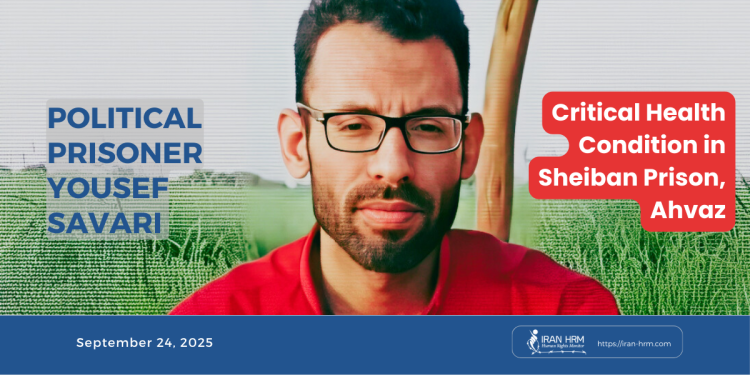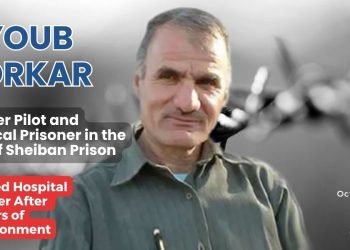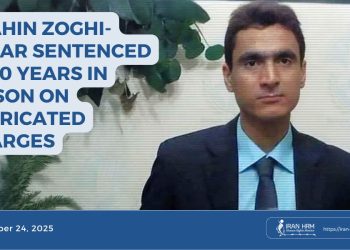Political prisoner Yousef Savari, currently held in Ward 5 of Sheiban Prison in Ahvaz, is reportedly in critical health condition due to severe respiratory complications. According to sources close to his family, Savari has experienced multiple acute episodes of shortness of breath in recent days and is unable to sleep. Despite the seriousness of his condition, prison authorities have so far failed to transfer him to a medical facility outside the prison.
In an interview with news outlets, his brother, Isa Savari, stated: “Yousef suffers from a pulmonary illness, and his breathing has deteriorated significantly in recent days. He feels like he’s suffocating when he lies down.” He added that the family has made repeated requests for his transfer to a medical center, but these have been denied without explanation. This situation is seen as part of a broader pattern of the deliberate denial of medical care to political prisoners in Iran.
Background on Arrest and Sentencing
Yousef Savari, born in 1988, is married and has three children. He is from the Abuhamizeh district of Khafajiyeh (also known as Susangerd) in Khuzestan Province. He was arrested on November 8, 2018, by Iran’s Islamic Revolutionary Guard Corps (IRGC) in Khafajiyeh. After several months of detention and reported torture at the Imam Ali IRGC Intelligence Detention Center in Ahvaz, he was sentenced to one year in prison and four years of suspended imprisonment on charges of “propaganda against the Islamic Republic of Iran” and “connection with opposition groups.”
Following a year and a half of uncertainty in Sheiban Prison, he was released on bail in March 2020, after posting a bond of 500 million tomans (approximately $12,000 USD at the time).
Despite having completed his initial sentence, in July 2023, the Ahvaz Revolutionary Court revised his sentence to six years of imprisonment and four years suspended, a decision upheld by Branch 17 of the Appeals Court. On January 29, 2024, he was summoned to Branch 8 of the Sentence Enforcement Unit of the Ahvaz Revolutionary Court and was returned to Sheiban Prison to serve the revised six-year sentence.
Medical Neglect as a Life-Threatening Issue
Concerns regarding Savari’s health had been raised previously. Sources familiar with his case say the ongoing denial of adequate medical treatment constitutes a clear violation of the basic rights of political prisoners. They warn that this negligence could lead to irreversible damage to his health and is part of a broader trend affecting political detainees in Iran. Denial of medical care, particularly for individuals with chronic or respiratory conditions, has been identified as a contributing factor in the increasing number of serious health complications and deaths in Iranian prisons.







